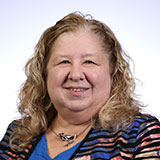Dallas, TX—The Cancer Center Business Summit grew out of interest in innovative business models for the delivery of cancer care in community oncology. The 2012 Summit focused on oncologist–hospital relationships, changing payer and provider models, and developing market strategies for success in the rapidly changing face of cancer care and rising costs.
Appropriately, the theme of the Summit this year was Transitioning to Value-Based Oncology: Strategies to Survive and Thrive. With growing business and federal attention on rising healthcare costs, the costs of cancer care are often in the spotlight. Public and private payers are experimenting with new payment methodologies and programs to transition from the current volume-based, fee-for-service standard for payment to a value-based model that will increasingly shift risk for some portion of the cost and the quality of health services to the hospitals and physicians who provide those services.
Ronald Barkley, MS, JD, President of the Cancer Center Business Development Group, Bedford, NH, presented the Summit’s annual industry research survey, which focused on the rapidly growing accountable care organizations (ACOs), and how oncology was being addressed in those new models. In addition, research by The Advisory Board Company, the American Society for Radiation Oncology, and Oncology Metrics showed a world of oncology that is struggling to understand its own metrics and comparative benchmarks, but that is taking charge and, in key areas, is trying innovative solutions that may lead to universal approaches.
Several panel discussions addressed topics directly relevant to practice administrators and providers, focusing on current initiatives in the delivery of cancer care, especially the recent experiments in oncology medical homes and ACOs on the West Coast and on the East Coast. The participants of the first panel discussed what other practices can learn from their experience with these innovations in oncology, sharing the challenges they have faced, even as they have pioneered some of the most visible and innovative pilot programs with oncologists in the country. Several articles provide specific details in this issue.
The second panel included physician and executive leaders from community oncology who spoke frankly about provider initiatives they were developing, with and without specific payers, at The West Clinic in Tennessee, New Mexico Oncology Hematology Consultants, Regional Cancer Care Associates in New Jersey, and at Cancer Treatment Centers of America.
Thomas J. Smith, MD, FACP, FASCO, Director of Palliative Medicine at Johns Hopkins Medical Institutions, Professor of Oncology at Sidney Kimmel Comprehensive Cancer Center, and Harry J. Duffey Family Professor of Palliative Medicine, Baltimore, MD, addresses the opportunities and the challenges of integrating a palliative care focus early into the treatment process, providing tools that he uses in practice.
Ezekiel J. Emanuel, MD, PhD, former Special Advisor on Healthcare Policy, Office of Management and Budget, Executive Office of the President, and Chair of the Department of Bioethics at the National Institutes of Health, delivered the Keynote Address at the Summit, highlighting the journey and future of the Accountable Care Act and of healthcare delivery system reform.
The oncology community faces a very real challenge, for which there is no easy answer: how will physicians continue to fight cancer with and for their patients when the world is swirling in constant chaos around them?
Community oncology will need to learn how to manage care and costs, to use data and analytics to monitor quality improvements and cost-savings opportunities, to develop or use cost-effective care protocols that also meet their clinical expectations for appropriateness and evidence, to reengineer the way they deliver their care, and to utilize the broad range of treatment resources that are now available to us. This is not a small challenge.


